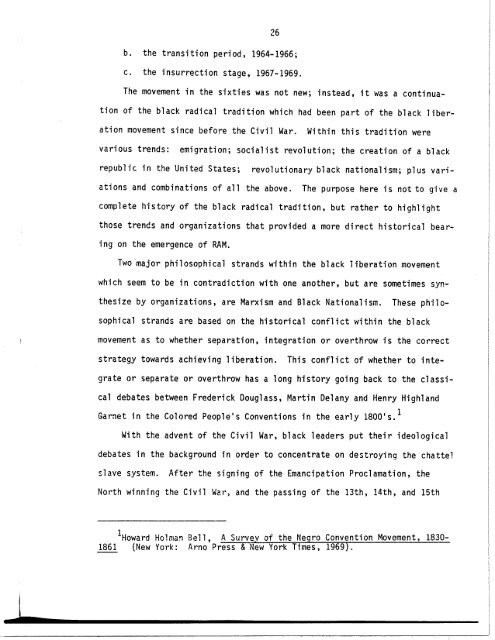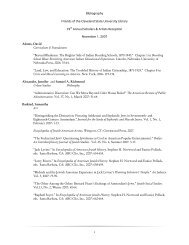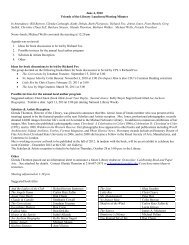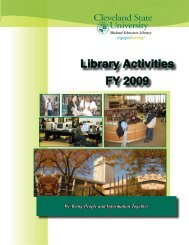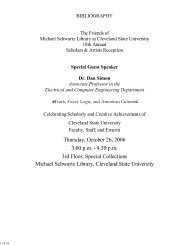revolutionary action movement (ram) - Michael Schwartz Library
revolutionary action movement (ram) - Michael Schwartz Library
revolutionary action movement (ram) - Michael Schwartz Library
Create successful ePaper yourself
Turn your PDF publications into a flip-book with our unique Google optimized e-Paper software.
'6<br />
b . the transition period, 1964-1966 ;<br />
c . the insurrection stage, 1967-1969 .<br />
The <strong>movement</strong> in the sixties was not new ; instead, it was a continuation<br />
of the black radical<br />
tradition which had been part of the black liberation<br />
<strong>movement</strong> since before the Civil War . Within this tradition were<br />
various trends : emigration ; socialist revolution ; the creation of a black<br />
republic in the United States ; <strong>revolutionary</strong> black nationalism ; plus vari<br />
ations and combinations of all the above . The purpose here is not to give a<br />
complete history of the black radical<br />
tradition, but rather to highlight<br />
those trends and organizations that provided a more direct historical<br />
bearing<br />
on the emergence of RAM .<br />
Two major philosophical<br />
strands within the black liberation <strong>movement</strong><br />
which seem to be in contradiction with one another, but are sometimes synthesize<br />
by organizations, are Marxism and Black Nationalism . These philo<br />
sophical strands are based on the historical conflict within the black<br />
<strong>movement</strong> as to whether separation, integration or overthrow is the correct<br />
strategy towards achieving liberation .<br />
This conflict of whether to integrate<br />
or separate or overthrow has a long history going back to the<br />
classical<br />
debates between Frederick Douglass, Martin Delany and Henry Highland<br />
Garnet in the Colored People's Conventions in the early 1800's . I<br />
With the<br />
advent of the Civil War, black leaders put their ideological<br />
debates in the background in<br />
order to concentrate on destroying the chattel<br />
slave system . After the signing of the Emancipation Proclamation, the<br />
North winning the Civil War, and the passing of the 13th, 14th, and 15th<br />
1 Howard Holman Bell, A Surv ey of the Negro Convention Movement, 1830-<br />
1861 (New York : Arno Press & New York Times, 1969) .


